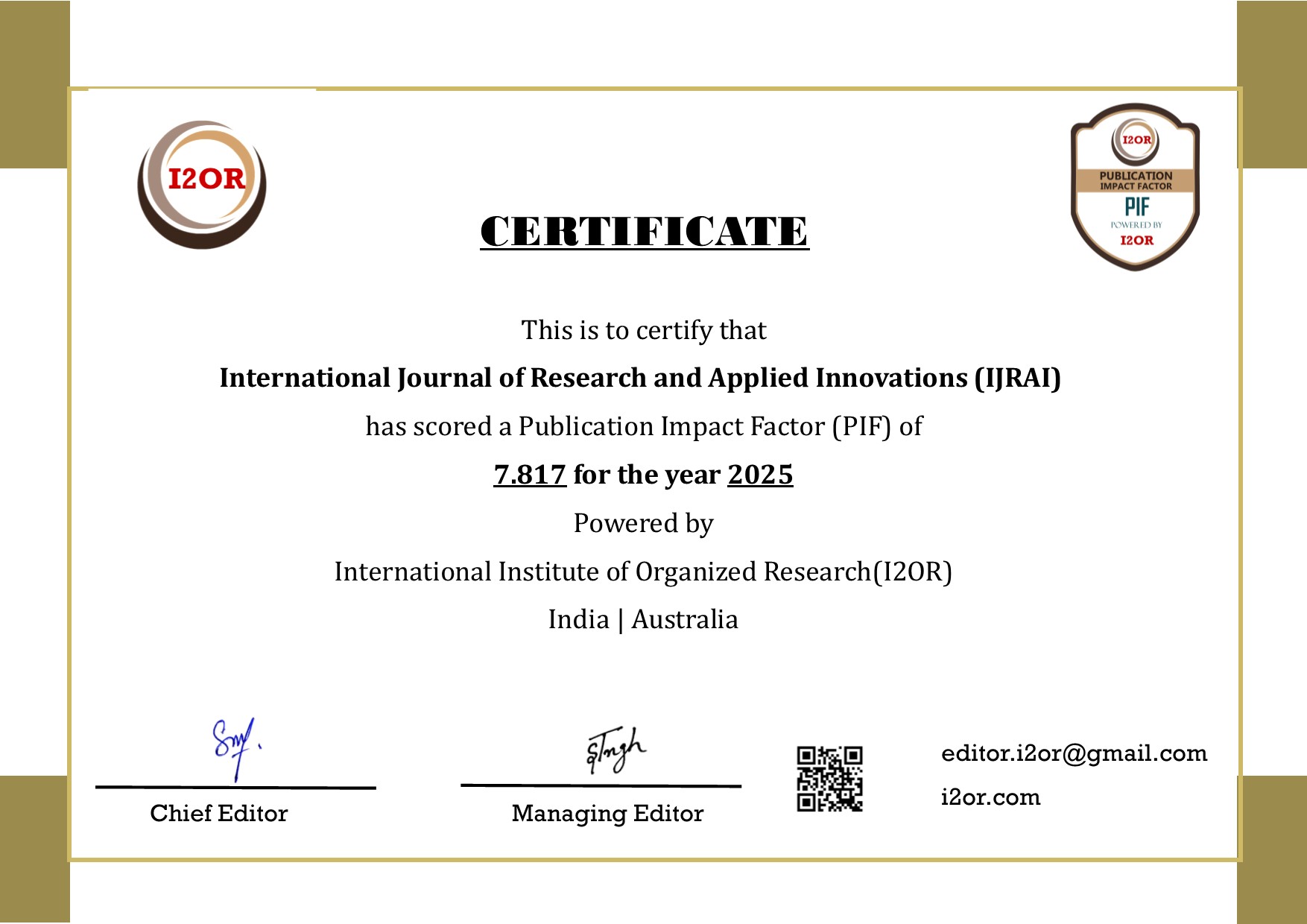Optimal Scheduling of Microgrids with PV, Wind, and Storage
DOI:
https://doi.org/10.15662/IJRAI.2020.0301002Keywords:
Microgrid Scheduling, Photovoltaic (PV), Wind Energy, Energy Storage Systems, Stochastic Optimization, Particle Swarm Optimization (PSO), Stochastic Quasi-Gradient Method (SQGM), Model Predictive Control (MPC), Forecast Uncertainty, Robust DispatchAbstract
This paper presents an overview of optimal scheduling strategies for microgrids integrating photovoltaic (PV), wind generation, and energy storage systems, reflecting approaches and insights from 2019. Addressing the inherent uncertainty of renewable generation and load variability, several methodologies emphasized robust, stochastic, and multiobjective optimization. Lin (2019) proposed a stochastic optimal dispatch using state-space approximate dynamic programming to handle variable PV and wind output, emphasizing reliable, cost-aware scheduling IET Research Journals. Similarly, research in IET Renewable Power Generation (2019) applied a modified Particle Swarm Optimization (PSO), adjusting inertia weight to enhance global search capability and mitigate forecast error impacts, improving day-ahead microgrid scheduling performance The IET Digital Library. Another significant contribution introduced the Stochastic Quasi-Gradient Method (SQGM) for optimal charging/discharging control of battery energy storage within hybrid microgrids; integrating AC load flow constraints, SQGM showed faster convergence and robustness compared to traditional stochastic dynamic programming (SDP/SDDP) approaches The IET Digital Library. Additionally, robust scheduling frameworks from 2019, such as model predictive control with soft SoC constraints and two-stage robust dispatch models, optimized microgrid operations under uncertainty, ensuring feasible and resilient performance arXiv+1. Collectively, these 2019 studies highlight significant strides in algorithmic innovation—balancing economic objectives, forecast uncertainty, computational efficiency, and system reliability. This paper synthesizes these methods, comparing their effectiveness, constraints handling, and simulation insights, ultimately offering a cohesive reference for microgrid operation under variable renewable energy supply.









